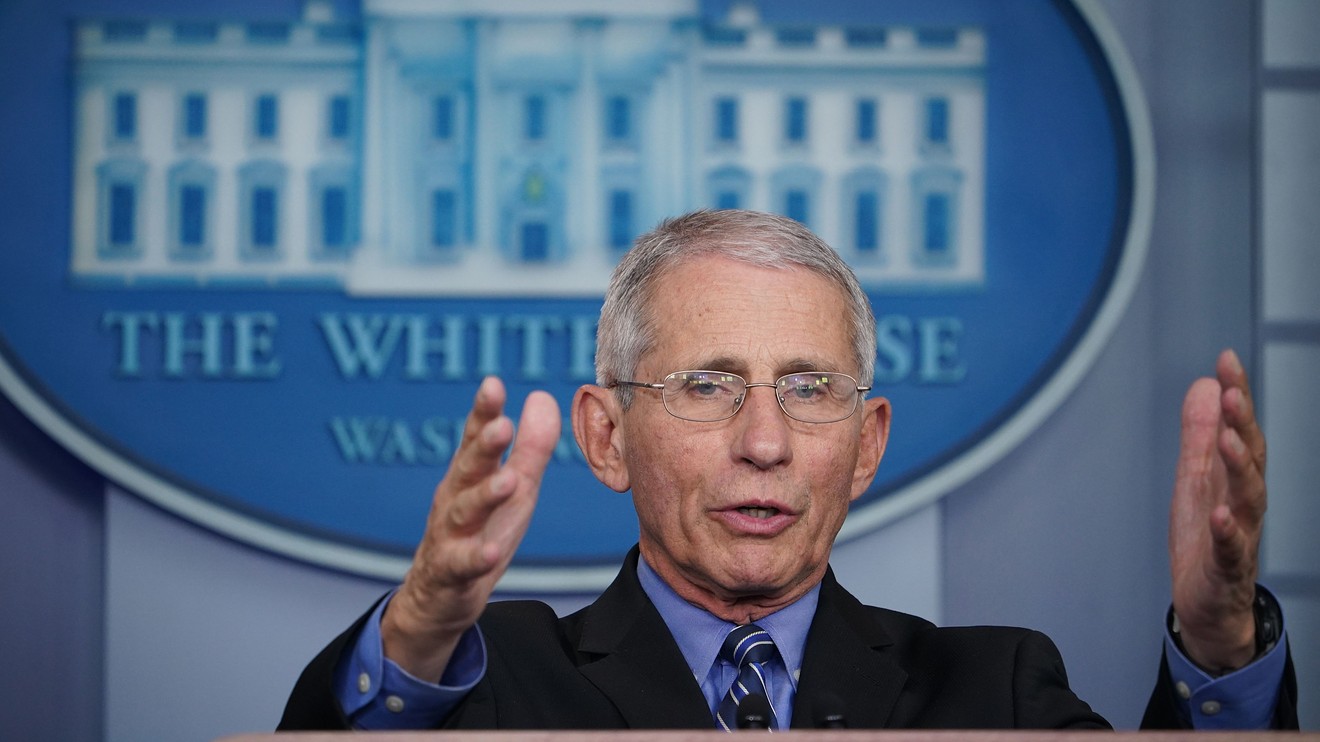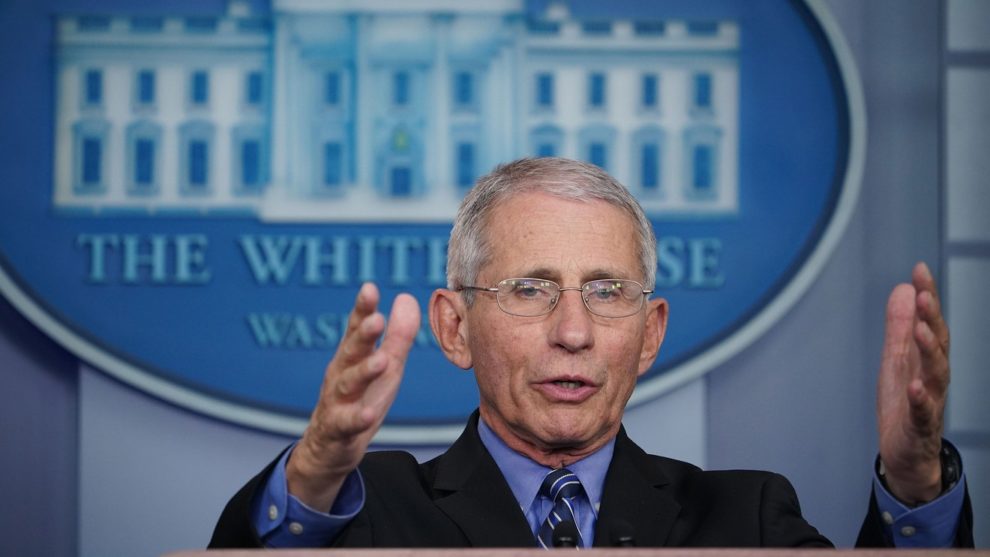
Anthony Fauci, the director of the National Institute of Allergy and Infectious Diseases, said Tuesday that the White House Coronavirus Task Force is giving “serious consideration” to broadening the existing guidance on face masks, but he said first priority must be given to health-care workers who are currently experiencing a shortage of masks.
Currently, the Centers for Disease for Control and Prevention does not recommend that the public wear masks. “The idea of getting a much more broad, community-wide use of masks outside of the health-care setting is under very active discussion at the task force,” Fauci, one of the country’s top infectious disease experts, told CNN T, -3.57%. “The CDC group is looking at that very carefully.”
“The thing that has inhibited that a bit is to make sure that we don’t take away the supply of masks from the health-care workers who need them,” he said. “But when we get in a situation when we have enough masks, I believe there will be some very serious consideration about broadening this recommendation of using masks. We’re not there yet, but we’re close.”
“If, in fact, a person who may or may not be infected wants to prevent infecting someone else, one of the best ways to do that is with a mask,” Fauci told CNN’s Jim Acosta. “So perhaps that’s the way to go and again, I say Jim, that’s under very active consideration. As I say, we’ll be discussing it today, this afternoon, at the task force meeting.”
The Moneyist: ‘All they care about is making money.’ My manager told me to remove my face mask at work. Do face masks work?
Fauci suggested the one thing putting this change of policy on hold is the scarcity of masks in health-care settings. “You don’t want to take masks away from the health care providers who are in a real and present danger of getting infected,” Fauci added. “That would be the worst thing we do. If we have them covered, you could look back and say maybe we need to broaden this.”
At the White House daily press briefing earlier this week, President Donald Trump was also asked if the general public should now be wearing non-medical face masks, and he too suggested there may be a change of direction on masks. “That’s certainly something we could discuss,” Trump replied. The president added, “It could be something like that for a limited period of time.”
Telling the public to wear masks would be a U-turn for U.S. public health officials. In the early days of the coronavirus in the U.S., the CDC, the Department of Health and Human Services and the U.S. Surgeon General all asked the public not to wear face masks unless they were unwell or caring for someone who was sick. A debate over masks has become increasingly heated in recent days.
Previous research has concluded that face masks help reduce contagion by reducing the amount of droplets sprayed into the air during flu season; a Japanese-based study says this works when paired with vaccination, not an option in this case. This study says N95 medical-grade masks do help filter viruses that are larger than 0.1 micrometers. The coronavirus is 0.125 micrometers.
Several Asian countries, including South Korea and Taiwan, where wearing face masks is relatively common, appear to have had more success “flattening the curve” more effectively than in countries like the U.S., Spain and Italy. But the World Health Organization and the CDC still say mask usage should be limited to people who have COVID-19 or those who work in hospitals.
div > iframe { width: 100% !important; min-width: 300px; max-width: 800px; } ]]>






